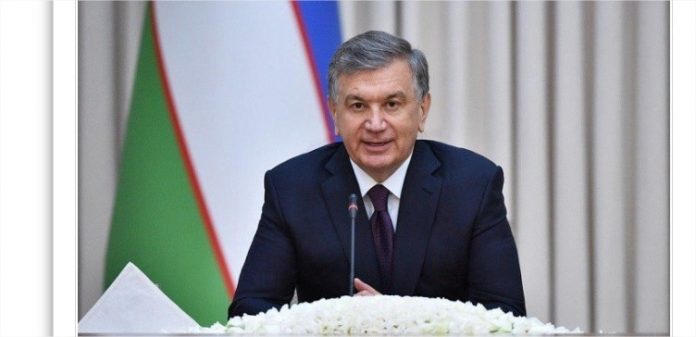On July 8, 2020, Geneva hosted ILO Virtual Global Summit on COVID-19 and the World of Work, Uzbekistan MFA reports. According to the Permanent Mission of Uzbekistan in Geneva, the summit was attended by over 80 heads of state and government, international organizations, including the UN, WTO, WHO, World Bank, IMF.
Participants presented information on measures taken to overcome the negative consequences of the pandemic at the national, regional and international levels.At the invitation of the ILO Director-General, President of Uzbekistan Shavkat Mirziyoyev addressed the Virtual Global Summit.
In his welcoming remarks, the President of Uzbekistan emphasized that since the beginning of this year, the situation with the COVID-19 pandemic has become the most important issue on the global agenda. There is no country or region that would not directly or indirectly experience the negative effects of the spread of coronavirus infection.Certainly, to effectively overcome this and other global challenges, first of all, coordinated actions are needed. And the current ILO Global Summit is a good platform for coordination of efforts.
In a pandemic, social support is vital along with ensuring the sustainability of the economy. This is fully in line with the task of ensuring social justice, as enshrined in the ILO Centenary Declaration.It was emphasized that the implementation of the ILO conventions in the national legislation and practice, in particular, the ratification of the C144 Convention on Tripartite Consultation, gave a powerful impetus to development of tripartite social dialogue in Uzbekistan.
In accordance with the principle of tripartism plus, business, trade unions, non-governmental organizations, civil society institutions and the public actively participate in the process of developing anti-crisis measures during the pandemic. This is a guarantee of the successful implementation of anti-crisis programs, protecting the interests of all segments of the population.The President of Uzbekistan noted that the pandemic has identified a number of problems in development of sustainable international relations and the absence of a global strategic plan of action in such emergency situations.In this regard, Shavkat Mirziyoyev forwarded the initiative to adopt, under the auspices of the UN, the International Code of Voluntary Obligations of States during pandemics.As the President of Uzbekistan noted, the minimum conditions and obligations of states, both to their citizens and to international partners, in the political, social, economic, humanitarian, human rights spheres, should be fixed in this code.First, restrictive measures should be exclusively temporary, with mandatory guarantees of observance of the rights and freedoms of citizens.Such measures should be proportional to risks, not to impede international trade, especially medical products, as well as measures to support socially vulnerable segments of the population.Second, the rapid spread of the pandemic has shown the need for systemic, timely and effective preventive measures, including in order to prevent overloading health services if it occurs.These are, first of all, measures for forecasting, deterring in the early stages of spread, counteracting the epidemic and minimizing its consequences.Third, the pandemic affirmed the importance of ensuring labor safety. This directly applies to health workers who have shown real heroism, being at the forefront of the fight against a new disease.It should be noted that today relations between Uzbekistan and the ILO continue to develop dynamically and consistently. The roadmap is being successfully implemented, adopted following the visit of the ILO Director-General Guy Ryder to Uzbekistan in 2018.

















